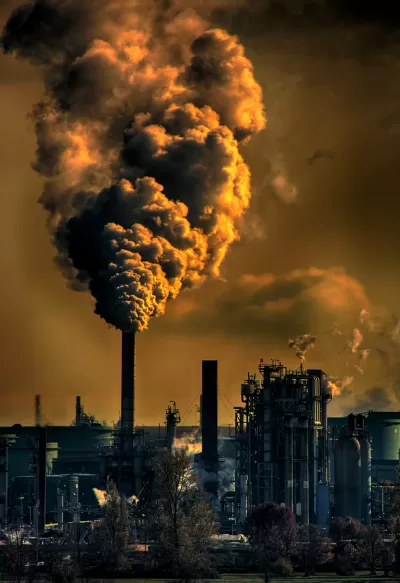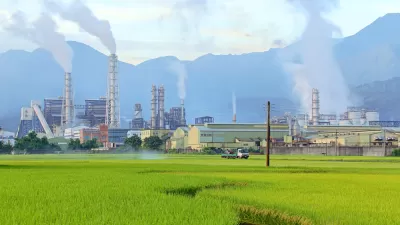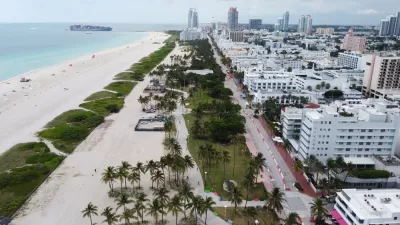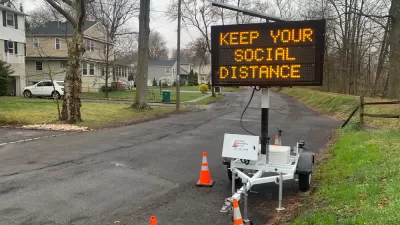The environmental gains at the beginning of the pandemic were only temporary., and there are signs more signs every day that the economy will be dirtier than ever in the future.

"The popular notion that the COVID-19 pandemic has been 'good for the environment'—that nature is recovering while humanity stays at home— appeals to many people grasping for some upside to the global tragedy. Reality, though, may not cooperate with such hopes," writes Beth Gardiner, author of Choked: Life and Breath in the Age of Air Pollution.
While early positive signs have begun to dissipate, the more gloomy signs that the recovery could take steps in the other direction are starting to emerge.
"In early April, with shutdowns widespread, daily global carbon emissions were down by 17 percent compared to last year. But as of June 11, new data show that they are only about 5 percent lower than at the same point in 2019, even though normal activity has not yet fully restarted."
But that's not the only gloomy news. In some parts of the world more capable of reopening the economy than the United States, like China, the recovery is proving dirtier than the pre-pandemic.
"As factories pushed to make up for lost time, pollution returned in early May to pre-coronavirus levels, and in some places surpassed them for a short time, although it’s fallen back a bit since. Meanwhile, provincial officials desperate for the economic boost that comes with any construction are giving the go-ahead to a raft of new coal-fired power plants," reports Gardiner, citing data provided by Lauri Myllyvirta, lead analyst at the Helsinki-based Center for Research on Energy and Clean Air.
Then there are the actions of governments, like the United States, which rolled back environmental protections during the pandemic, allowing polluters free rein if and when business does eventually pick back up. A similar free-for-all is already underway in Brazil, where "illegal loggers have accelerated their destruction of the Amazon rainforest while the coronavirus ravages the nation," according to Gardiner.
FULL STORY: Why COVID-19 will end up harming the environment

Maui's Vacation Rental Debate Turns Ugly
Verbal attacks, misinformation campaigns and fistfights plague a high-stakes debate to convert thousands of vacation rentals into long-term housing.

Planetizen Federal Action Tracker
A weekly monitor of how Trump’s orders and actions are impacting planners and planning in America.

In Urban Planning, AI Prompting Could be the New Design Thinking
Creativity has long been key to great urban design. What if we see AI as our new creative partner?

Baker Creek Pavilion: Blending Nature and Architecture in Knoxville
Knoxville’s urban wilderness planning initiative unveils the "Baker Creek Pavilion" to increase the city's access to green spaces.

Pedestrian Deaths Drop, Remain Twice as High as in 2009
Fatalities declined by 4 percent in 2024, but the U.S. is still nowhere close to ‘Vision Zero.’

King County Supportive Housing Program Offers Hope for Unhoused Residents
The county is taking a ‘Housing First’ approach that prioritizes getting people into housing, then offering wraparound supportive services.
Urban Design for Planners 1: Software Tools
This six-course series explores essential urban design concepts using open source software and equips planners with the tools they need to participate fully in the urban design process.
Planning for Universal Design
Learn the tools for implementing Universal Design in planning regulations.
planning NEXT
Appalachian Highlands Housing Partners
Mpact (founded as Rail~Volution)
City of Camden Redevelopment Agency
City of Astoria
City of Portland
City of Laramie





























